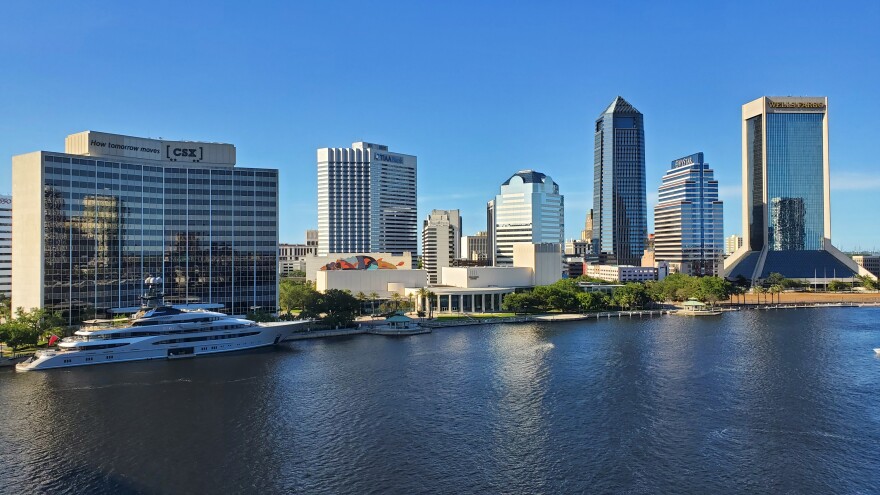The Jacksonville City Council’s Finance Committee is looking at new sources of revenue for the city.
One possibility discussed during Tuesday morning’s meeting - an increase to the current local gas tax.
“There's not a whole lot of sources of income that come into the city,” said Finance Committee Chair Aaron Bowman, who previously brought up the possibility of a gas tax to fund economic growth in underserved areas of the city.
He said he wanted to hold a discussion on the possibility of a tax before the new budget is introduced in July.
The council heard short presentations from the Civic Council, City Council Auditors, and the Jacksonville Transportation Authority on the areas that the city can pull this extra tax from, and where the extra revenue can be spent.
Jeanne Miller, head of the Jacksonville Civic Council, said the organization has been studying public finances in the city for a few years.
The studies showed that when compared to other large cities in Florida, such as Ft. Lauderdale, Tampa, and Miami; Jacksonville had the lowest total revenue per capita, the lowest property tax millage rate, lowest revenue generated from 1 mil, and lowest per capita revenue from permits, fees, special assessments and tourist and bed taxes.
Jacksonville had the fourth highest sales tax per capita compared to other cities, and government spending was also low.
When considering a gas tax, Miller said it’s important to put into perspective how large of an area Jacksonville covers.
“If you were to look at the total sum of City and County Transportation spending - so it's not just gas tax - but just look at that across cities and counties, we are the lowest per square mile,” Miller said.
Phillip Peterson, a council auditor, explained that Jacksonville already has a 6 cent gas tax implemented in Duval County until 2036. As part of an agreement with JTA, 5 cents goes to the authority, and 1 cent stays with Jacksonville. The tax is further divided to help out the quasi-independent communities, depending on their population.
By comparison, Baker County has a 7 cent gas tax, while Nassau County and Clay County tax drivers 12 cents per gallon.
Peterson said there were two options for the gas tax in Duval to increase: either by a 1 to 5 cent gas tax increase that can be implemented by the City Council or by a voter referendum, or a 1 cent gas tax, also known as the Ninth-Cent Gas Tax, which is already applied to diesel fuel statewide.
The money gained from the taxes can be used primarily for the improvement of roads and the construction of new roads.
Of the current tax, Peterson said roughly $27.7 million goes to JTA, and approximately $5.5 million goes to the city. Eighty percent of the money the city receives is used for roadway maintenance, while the other 20% is for bicycle and pedestrian improvements, including sidewalks.
Councilwoman LeAnna Cumber said she would like to see if the agreement with JTA can be amended, to get Jacksonville more than 1 cent of the current gas tax.
“Since we already have the six cents, giving one, one penny or two cents from that,” Cumber said.
Councilwoman Randy DeFoor questioned how much money is spent on sidewalks.
“We've apparently ran through our budget on sidewalks in three months, and it's an issue,” DeFoor said.
While the Ninth-Cent Gas tax and current local gas tax can be used for sidewalks, Peterson said he doesn’t believe the 1 to 5 cent gas tax would have that same capability due to restrictions.
JTA VP of Finance Greg Hayes showed in his presentation that the proceeds the authority received from the tax went into the development, construction, operations and maintenance of certain roadway projects.
The money received is expected to be much lower this year, according to Hayes, because of COVID-19 impacts. So far, it’s down about 18%.
Bowman said the discussion on the tax will continue in the coming months.
“This is just an example today of how we can all work together and so it's been a great effort by all involved and I know it's probably generated more questions and that will come in the future,” Bowman said.
Sky Lebron can be reached at slebron@wjct.org, 904-358-6319 or on Twitter at @SkylerLebron.


